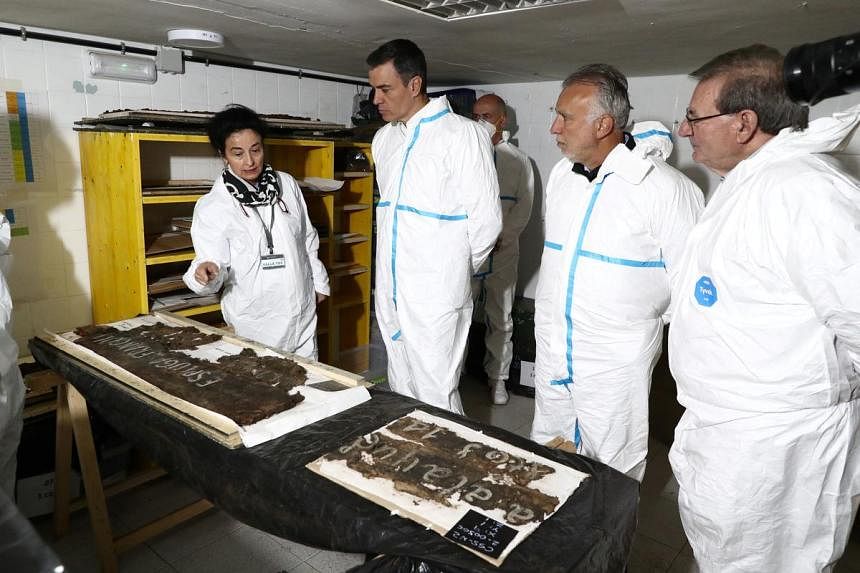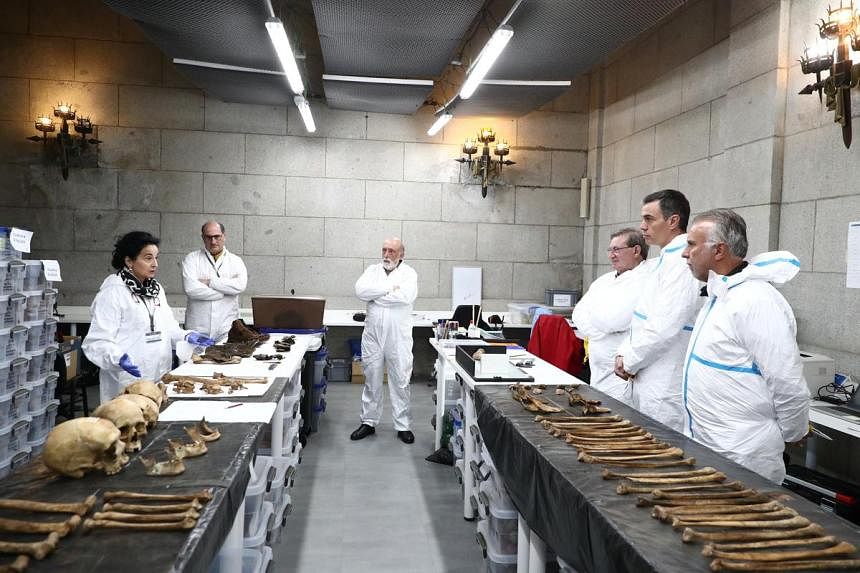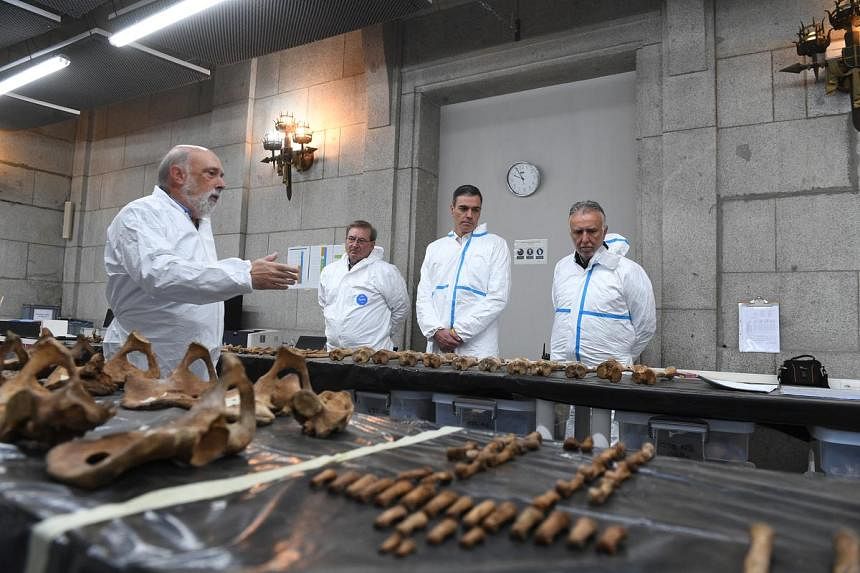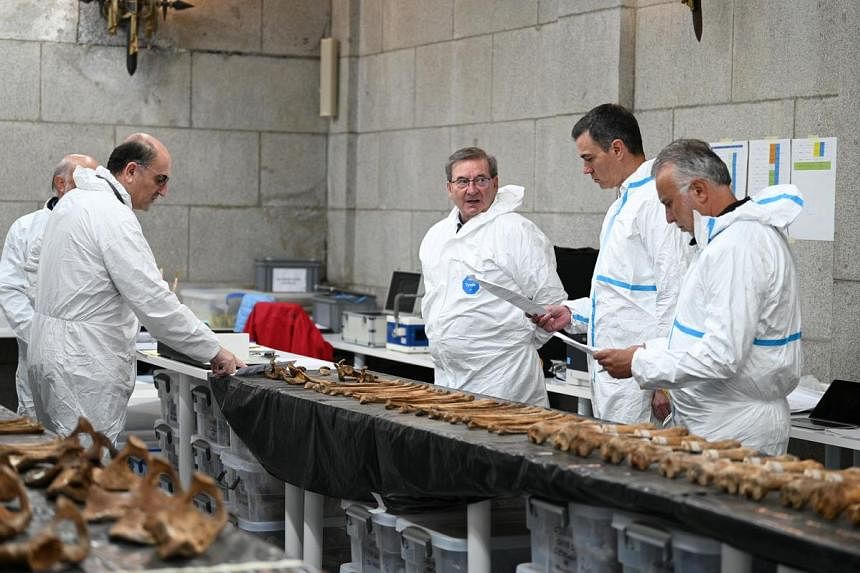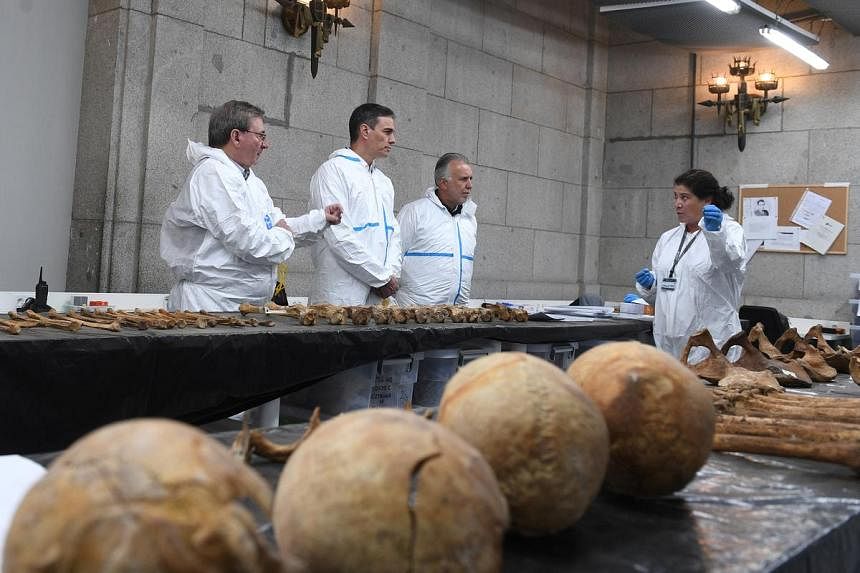MADRID - Spanish Prime Minister Pedro Sanchez visited a Francoist mausoleum outside Madrid on Thursday to learn about the exhumation of 160 civil war victims, whose remains were claimed by their families.
The exhumations are the first involving bodies moved from other parts of Spain after the 1936-1939 war and reburied without their families' consent in a sprawling monument built by dictator Francisco Franco in the Valley of Cuelgamuros, 50km (31 miles) northwest of Madrid.
Around 34,000 people from opposing sides of the Spanish Civil War are buried there.
Relatives have been fighting for years to rebury their loved ones under their own names and near their families, instead of at a mausoleum hewn out of a mountainside by political prisoners during the post-war period.
Six forensic doctors and over 20 researchers specialising in history, archaeology and genetics are working to exhume the victims.
Sanchez, wearing white personal protective equipment, visited the forensic laboratory as well as the crypts and columbaria of the mausoleum, video and pictures of the visit released by the government showed.
He listened to the forensic team explain how they had searched for labelled boxes and carried out anthropological, dental and radiological studies of the remains extracted, along with DNA analyses.
The government's footage showed wooden boxes damaged by the passage of time containing piles of human remains. Experts are now using new boxes where they are collecting the bones for better preservation.
Groups such as the Association for the Recovery of Historical Memory complained that Sanchez was able to visit while the victim's relatives have not been granted access.
Spain transitioned to democracy following Franco's death in 1975, but the legacy of his four-decade fascist dictatorship still divides Spanish society.
Several regions ruled by the conservative People's Party and far-right Vox have restricted the national law that allows relatives to identify victims buried in about 2,400 unmarked mass graves around the country.
The government has challenged those restrictions before the Constitutional Court and said it could take them to international institutions. REUTERS
